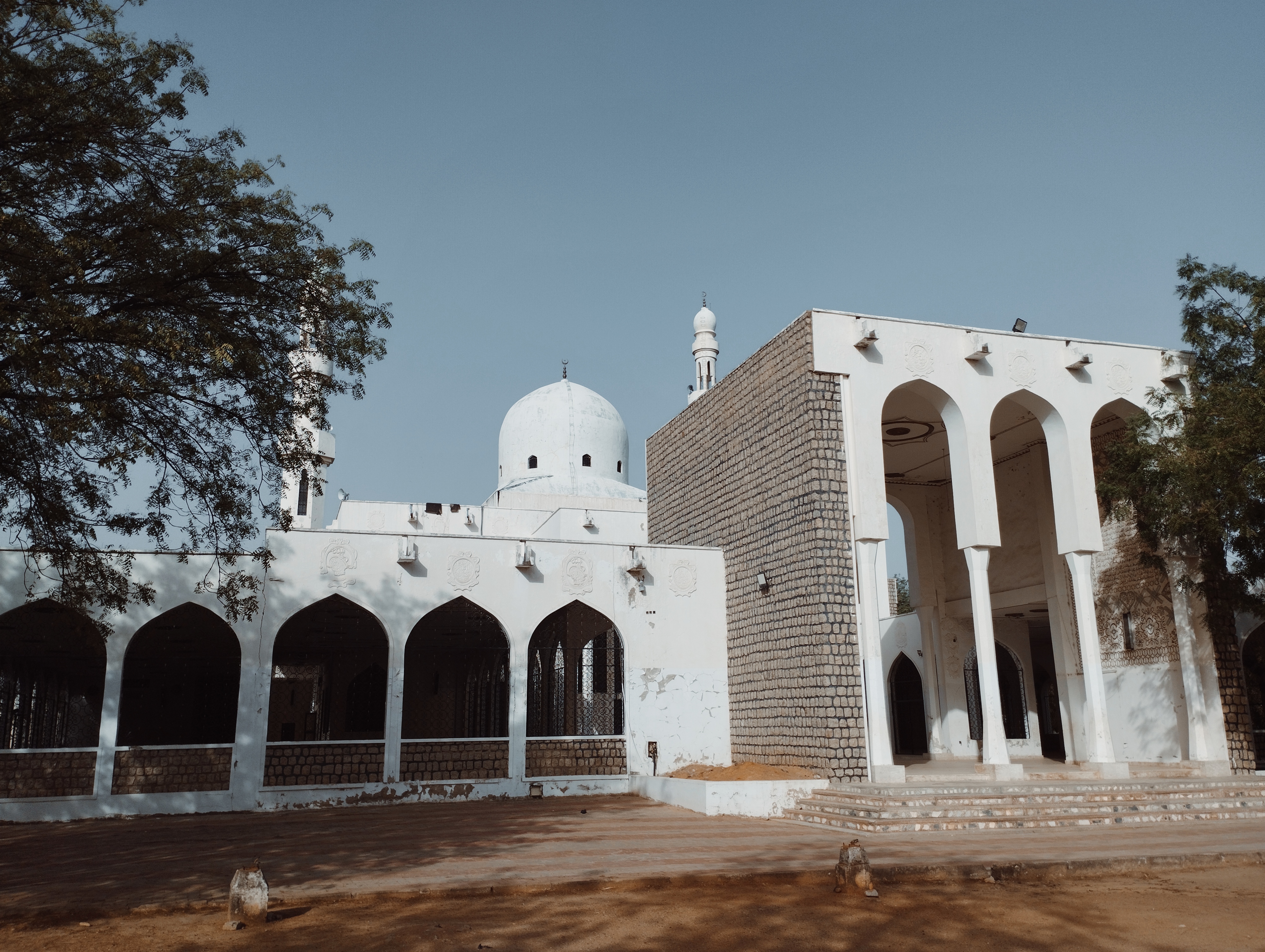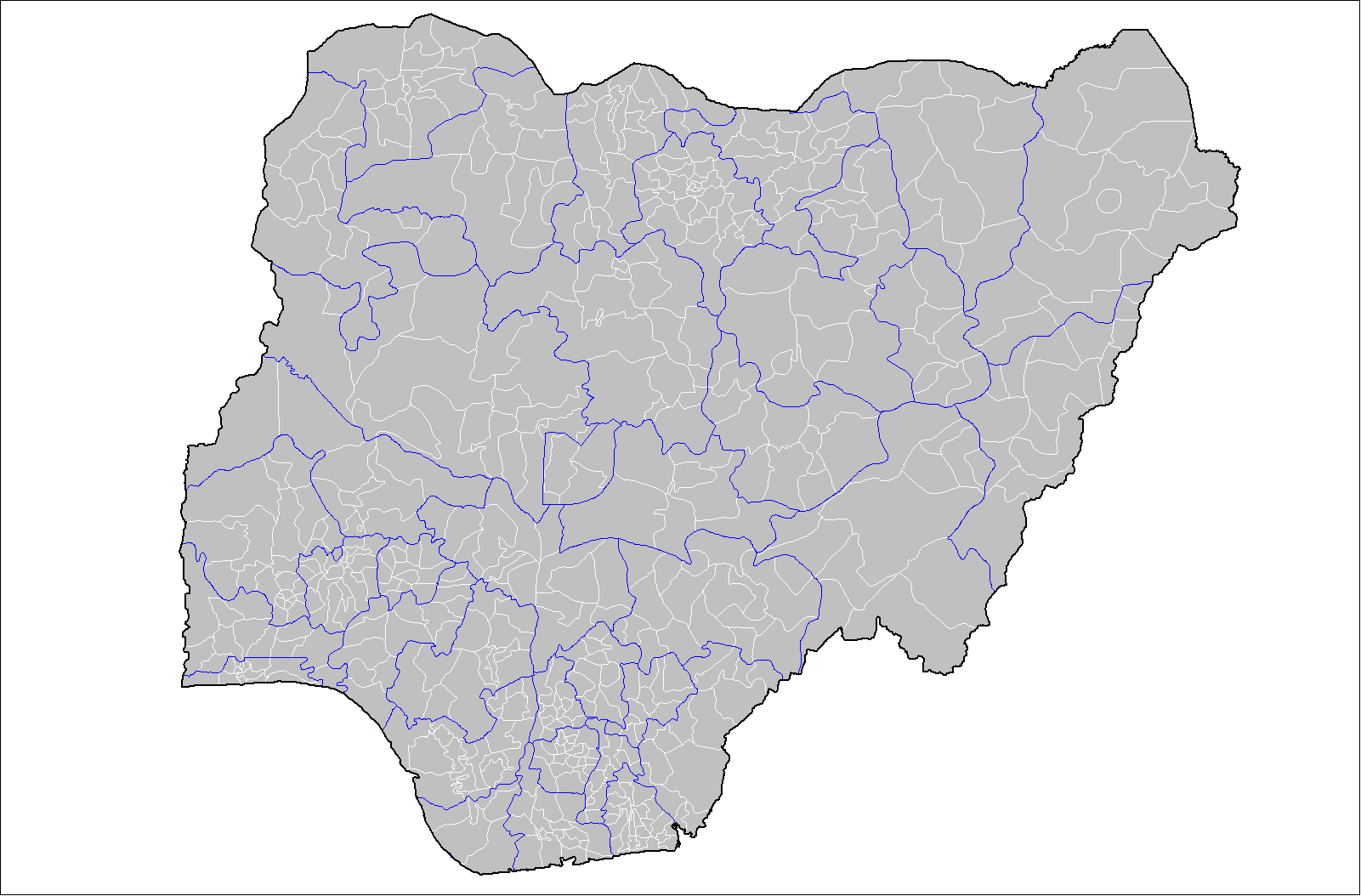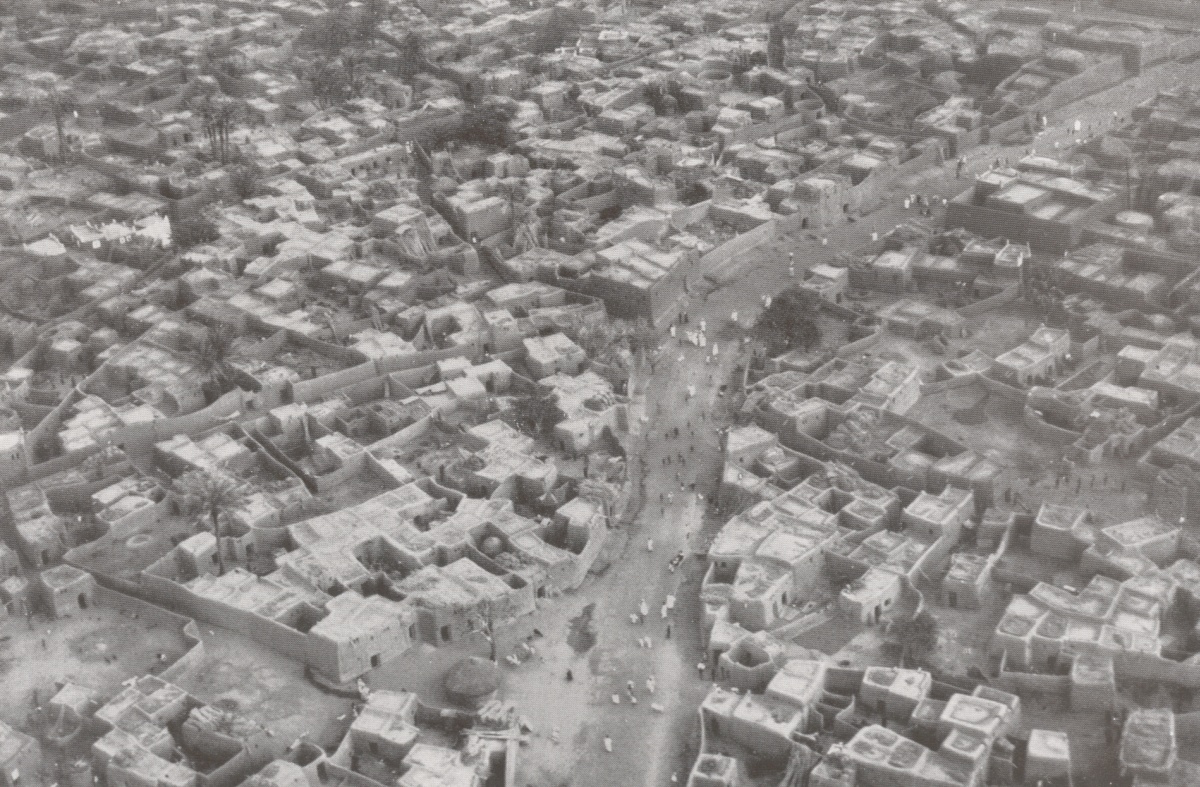|
Gumel
Gumel or Gumal is a city and traditional emirate in Jigawa State, Nigeria. Geography Gumel is located 120 km northeast of Kano, and lies about 20 km south of Nigeria's northern border with Niger. As of 2007 the estimated population of Gumel was 44,158. Gumel, also spelled Gummel, town and traditional emirate, northern Jigawa state, northern Nigeria. The emirate was founded about 1750 by Dan Juma of Kano city (75 miles 21 kmsouthwest) and his followers of the Manga (Mangawa) tribe. Shortly after his death in 1754, it became a tributary state of the Bornu kingdom. The emirate survived the Fulani attacks of Usman dan Fodio’s jihad (“holy war”) in the early 19th century and never became part of the Fulani empire of Sokoto. In 1845 Gumel’s capital was moved from Tumbi (20 miles north in present-day Niger) to the present site. Wars with nearby Hadejia, Kano, and Zinder (Damagaram) plagued the emirate from 1828; the war with Hadejia continued until Gumel’s emir, ... [...More Info...] [...Related Items...] OR: [Wikipedia] [Google] [Baidu] |
Jigawa State
Jigawa (; 𞤤𞤫𞤴𞤮𞤤 𞤶𞤭𞤺𞤢𞤱𞤢) is a state in Nigeria, located in the northern region of the country. Jigawa was created on 27 August 1991, under the General Ibrahim Babangida military administration. Jigawa State was formerly part of Kano State and was located in the northeastern-most region of Kano State. It forms part of Nigeria's national border with the Republic of Niger. The state capital and largest city is Dutse. Jigawa state has 27 local governments. The eighth largest state by population, residents of Jigawa State are predominantly of Hausa or Fulani background. The vast majority of the residents of Jigawa State are Muslim, and it is one of the twelve states in the country to be governed by Sharia law. Jigawa State is famous for the ''Dutsen Habude'' cave paintings in the town of Birnin Kudu, which have been dated back to the Neolithic period. The town of Hadejia (formerly ''Biram'') is notable as being one of the traditional "seven t ... [...More Info...] [...Related Items...] OR: [Wikipedia] [Google] [Baidu] |
Ahmad Muhammad Sani II
Ahmad Muhammad Sani II (born 12 December 1942) is the current and 16th Emir of Gumel in Jigawa State, Nigeria. Early life and education Sani II received his primary education at Gumel Primary School from 1948 to 1953. He then attended Hadejia Middle School from 1953 to 1956. For his secondary education, he went to Kano High School in Rumfa College, graduating in 1961. Sani II studied at the Institute of Administration in Zaria (now part of Ahmadu Bello University). He earned a diploma in Public Administration in 1963 and returned for a Higher Diploma in the same field in 1970. In 1972, he studied Political Science (undergraduate) and International Relations (postgraduate) at Ohio University in Athens, Ohio, United States, completing his studies in 1978. Career Before joining politics, Sani II worked with the Gumel Native Authority from 1961 to 1963. In 1964. He joined the immigration department and was stationed in Ngambori Ngala, Borno State. His career progressed further in 197 ... [...More Info...] [...Related Items...] OR: [Wikipedia] [Google] [Baidu] |
Local Government Areas Of Nigeria
Nigeria has 774 local government areas (LGAs), each administered by a local government council consisting of a chairman, who is the chief executive, and other elected members, who are referred to as councillors. Each LGA is further subdivided into a minimum of ten and a maximum of twenty wards. A ward is administered by a councillor, who reports directly to the LGA chairman. The councillors fall under the legislative arm of the local government, Local Government, the third tier of government in Nigeria, below the state governments and the federal government. Functions The functions of local governments are detailed in the Constitution of Nigeria, Nigerian constitution and include the following: * Economic recommendations to the State. * Collection of taxes and fees. * Establishment and maintenance of cemeteries, burial grounds and homes for the destitute or infirm. * Licensing of bicycles, trucks (other than mechanically propelled trucks), canoes, wheelbarrows and carts. * Esta ... [...More Info...] [...Related Items...] OR: [Wikipedia] [Google] [Baidu] |
Kano State
Kano (Hausa language, Hausa: ) is one of the 36 States of Nigeria, states of Nigeria, located in the Northern Region, Nigeria, northern region of the country. According to the national census done in 2006, Kano State is the List of Nigerian states by population, most populous state in Nigeria. The recent official estimates taken in 2016 by the National Bureaucracy, Bureau of Statistics found that Kano State was still the largest state by population in Nigeria. Created in 1967 out of the former Northern Region, Nigeria, Northern Region, Kano State borders on Katsina State to the northwest for about 210 km (130 miles), Jigawa State to the northeast for 355 km (221 miles), Bauchi State to the southeast for 131 km (82 miles), and Kaduna State to the southwest for 255 km. The state's capital and largest city is the city of Kano (city), Kano, the List of Nigerian cities by population, second most populous city in Nigeria after Lagos. The incumbent governor of the s ... [...More Info...] [...Related Items...] OR: [Wikipedia] [Google] [Baidu] |
Emirate
An emirate is a territory ruled by an emir, a title used by monarchs or high officeholders in the Muslim world. From a historical point of view, an emirate is a political-religious unit smaller than a caliphate. It can be considered equivalent to a principality in non-Muslim contexts. Currently in the world, there are two emirates that are independent states (Kuwait and Qatar), one state ruled by an unrecognised emirate (Afghanistan), and a state that consists of a federation of seven emirates (the United Arab Emirates). A great number of previously independent emirates around the world are now part of larger states. Etymology Etymologically, emirate or amirate ( ' plural: ') is the quality, dignity, office, or territorial competence of any emir (prince, commander, governor, etc.). In English, the term is pronounced or in British English and or in American English. Types Monarchies The United Arab Emirates is a federal state that comprises seven federal emirates, each ad ... [...More Info...] [...Related Items...] OR: [Wikipedia] [Google] [Baidu] |
Maigatari
Maigatari is a border town located in the Sahel along the Niger-Nigeria border. The town is known for its large market founded in 1870 and trading in horses, camels, cattle and other livestock between Niger, Mali, Chad and Cameroon. The principal inhabitants of the town include Hausa, Fulani and Kanuri. The town has an area of 870 km and a population of 179,715 at the 2006 census. It is located north of Kano, and was previously part of Kano State until 1991 when Jigawa State gained statehood. Administration Local Government Area in the north of Jigawa State, Nigeria, bordering on the Republic of Niger. Its headquarters are in the town of Maigatari. The postal code A postal code (also known locally in various English-speaking countries throughout the world as a postcode, post code, PIN or ZIP Code) is a series of letters or numerical digit, digits or both, sometimes including spaces or punctuation, inclu ... of the area is 732. Climate In Maigatari, the dry ... [...More Info...] [...Related Items...] OR: [Wikipedia] [Google] [Baidu] |
Hadejia
Haɗejiya (also Haɗeja, previously Biram) is a Hausa town in eastern Jigawa State, northern Nigeria. Hadejia lies between latitude 12.4506N and longitude 10.0404E. It shares boundary with Kiri Kasama Local Government to the east, Mallam Maɗori Local Government from to the north, and Auyo Local Government to the west. The Hadejia Local Government consist of eleven (11) political wards, namely: Atafi, Dubantu, Gagulmari, Kasuwar Ƙofa, Kasuwar Kuda, Matsaro, Majema, Rumfa, Sabon Garu, Ƴankoli and Yayari. Inhabitants are dominantly Hausa, Fulani and Kanuri with some other groups such as Tiv, Yoruba, Igbo, Igala etc. The dominant occupation of the inhabitants is crop-farming and animal rearing which a considerable percentage, engaged in trading, fishing and services including civil service. The people of Haɗeja are largely Muslims, although some follow indigenous belief systems. The town lies to the north of the Hadejia River, and is upstream from the Hadejia-Nguru wet ... [...More Info...] [...Related Items...] OR: [Wikipedia] [Google] [Baidu] |
Local Government Areas In Jigawa State
Local may refer to: Geography and transportation * Local (train), a train serving local traffic demand * Local, Missouri, a community in the United States Arts, entertainment, and media * ''Local'' (comics), a limited series comic book by Brian Wood and Ryan Kelly * ''Local'' (novel), a 2001 novel by Jaideep Varma * ''The Local'' (film), a 2008 action-drama film * ''The Local'', English-language news websites in several European countries Computing * .local, a network address component Mathematics * Local property, a property which occurs on ''sufficiently small'' or ''arbitrarily small'' neighborhoods of points * Local ring, type of ring in commutative algebra Other uses * Pub, a drinking establishment, known as a "local" to its regulars See also * * * Local group (other) * Locale (other) * Localism (other) Localism may refer to: * Fiscal localism, ideology of keeping money in a local economy * Local purchasing, a movement to buy lo ... [...More Info...] [...Related Items...] OR: [Wikipedia] [Google] [Baidu] |
Peanut
The peanut (''Arachis hypogaea''), also known as the groundnut, goober (US), goober pea, pindar (US) or monkey nut (UK), is a legume crop grown mainly for its edible seeds. It is widely grown in the tropics and subtropics by small and large commercial producers, both as a grain legume and as an oil crop. Atypically among legumes, peanut pods geocarpy, develop underground; this led botanist Carl Linnaeus to name peanuts ''hypogaea'', which means "under the earth". The peanut belongs to the botanical family Fabaceae (or Leguminosae), commonly known as the legume, bean, or pea family. Like most other legumes, peanuts harbor symbiotic nitrogen-fixing bacteria in root nodules, which improve soil fertility, making them valuable in crop rotations. Despite not meeting the Botanical nut, botanical definition of a nut as "a fruit whose ovary (botany), ovary wall becomes hard at maturity," peanuts are usually categorized as nuts for culinary purposes and in common English. Some pe ... [...More Info...] [...Related Items...] OR: [Wikipedia] [Google] [Baidu] |
Millet
Millets () are a highly varied group of small-seeded grasses, widely grown around the world as cereal crops or grains for fodder and human food. Most millets belong to the tribe Paniceae. Millets are important crops in the Semi-arid climate, semiarid tropics of Asia and Africa, especially in India, Mali, Nigeria, and Niger, with 97% of production in Developing country, developing countries. The crop is favoured for its Agricultural productivity, productivity and short growing season under hot dry conditions. The millets are sometimes understood to include the widely cultivated sorghum; apart from that, pearl millet is the most commonly cultivated of the millets. Finger millet, proso millet, and foxtail millet are other important crop species. Millets may have been consumed by humans for about 7,000 years and potentially had "a pivotal role in the rise of multi-crop agriculture and settled farming societies". Etymology The word ''millet'' is derived via Old French ''millet, ... [...More Info...] [...Related Items...] OR: [Wikipedia] [Google] [Baidu] |
Sorghum
''Sorghum bicolor'', commonly called sorghum () and also known as great millet, broomcorn, guinea corn, durra, imphee, jowar, or milo, is a species in the Poaceae, grass genus ''Sorghum (genus), Sorghum'' cultivated for its grain. The grain is used as food by humans, while the plant is used for animal feed and ethanol production. Sorghum originated in Africa, and is widely cultivated in tropical and subtropical regions. Sorghum is the world's fifth-most important cereal crop after rice, wheat, maize, and barley. Sorghum is typically an annual, but some cultivars are perennial. It grows in clumps that may reach over high. The grain is small, in diameter. Sweet sorghums are cultivars grown for forage, syrup production, and ethanol. They are taller than those grown for grain. Description Sorghum is a large stout grass that grows up to tall. It has large bushy flowerheads or panicles that provide an edible starchy grain with up to 3,000 seeds in each flowerhead. It grows ... [...More Info...] [...Related Items...] OR: [Wikipedia] [Google] [Baidu] |
Emir
Emir (; ' (), also Romanization of Arabic, transliterated as amir, is a word of Arabic language, Arabic origin that can refer to a male monarch, aristocratic, aristocrat, holder of high-ranking military or political office, or other person possessing actual or ceremonial authority. The title has a history of use in West Asia, East Africa, West Africa, Central Asia, and South Asia. In the modern era, when used as a formal monarchical title, it is roughly synonymous with "prince", applicable both to a son of a hereditary monarch, and to a reigning monarch of a sovereign principality, namely an emirate. The female, feminine form is emira ( '), with the same meaning as "princess". Prior to its use as a monarchical title, the term "emir" was historically used to denote a "commander", "general", or "leader" (for example, Amir al-Mu'min). In contemporary usage, "emir" is also sometimes used as either an honorary or formal title for the head of an Islamic, or Arab (regardless of relig ... [...More Info...] [...Related Items...] OR: [Wikipedia] [Google] [Baidu] |




